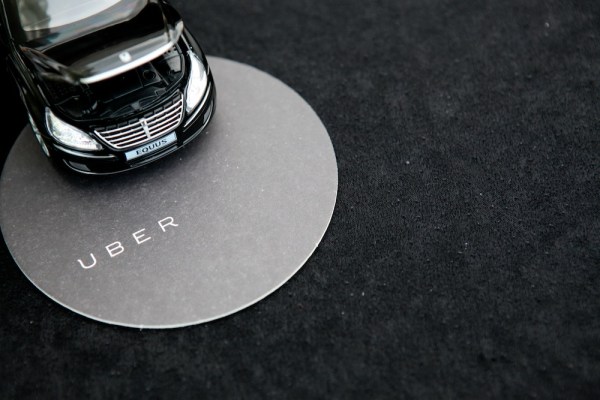Uber has thrown a curveball by revising the arbitration clause in its latest driver agreement, which Shannon Liss-Riordan, the lead plaintiffs’ attorney, says is an attempt to challenge Judge Edward Chen’s recent court ruling that effectively allows the vast majority of Uber’s 160,000 drivers in California to join the class-action lawsuit,” BuzzFeed reports. Now, Liss-Riordan, is filing an emergency motion asking the court to block Uber from enforcing the new drivers agreement.
“Uber has tried to fix the problem that Judge Chen ruled made the agreement unenforceable,” Liss Riordan told TechCrunch in an email.
Earlier this week, Judge Edward Chen ruled that all Uber drivers who have worked for the company since 2009 can participate in the class-action lawsuit that argues Uber should reimburse drivers for gas and other expenses. This was a big victory for the plaintiffs because before, the court had excluded drivers who had driven for Uber beginning in 2014, unless they had opted out of Uber’s arbitration clause. Arbitration, in this case, is an agreement to settle any disputes outside of court. It turns out, as Judge Chen ruled, that the specific clause Uber outlined in its drivers agreement was illegal, and therefore unenforceable.
The illegal clause involves the Private Attorney General Act, which enables private citizens to act as an attorney general, and therefore pursue fines that would usually only be available to the state of California.
“As a Private Attorney General, the aggrieved employee is allowed to seek civil penalties not only for violations that he personally suffered but also for violations of ‘other current or former employees.’ Cal. Lab. Code § 2699(a).”
Uber’s new drivers agreement, which the company updated today, has added an exception around PAGA, clarified language around the effective date and removed the requirement that arbitration must be kept confidential. aIt now reads the following around arbitration:
This Arbitration Provision will require you to resolve any claim that you may have against the Company or Uber on an individual basis, except as provided below, pursuant to the terms of the Agreement unless you choose to opt out of the Arbitration Provision. Except as provided below, this provision will preclude you from bringing any class, collective, or representative action (other than actions under the Private Attorneys General Act of 2004 (“PAGA”), California Labor Code § 2698 et seq. (“PAGA”)) against the Company or Uber, and also precludes you from participating in or recovering relief under any current or future class, collective, or representative (non-PAGA) action brought against the Company or Uber by someone else.
So, drivers can technically still file a lawsuit against Uber under PAGA, but the above-mentioned “aggrieved employee,” who can seek civil penalties on their own behalf as well as on the behalf of other current or former employees, can only do so if he or she first informs the State of California Labor and Workforce Development Agency “of the alleged violations and the LWDA does not pursue the allegations or does not issue a citation within certain time periods.”
With the new drivers agreement, Uber is trying “to be clever by redrafting its agreement in a way that it can content that the challenged provision is severable,” Liss-Riordan said. “However, Uber cannot undercut the court’s ruling on class certification. We believe this is an illegal attempt by Uber to usurp the court’s role now in overseeing the process of who is included in the class.”
Here’s Uber’s statement around the new drivers agreement: “We believe strongly that our agreements are valid, but we are making some changes and clarifications to remove uncertainty for drivers and for us as we work through our multiple appeals on this issue.”
On December 17, Judge Chen blocked Uber from enforcing the new contract and ordered the company to stop communicating with the drivers covered by the class-action lawsuit, unless they consult the drivers’ lawyers or receive the consent of the court, according to Bloomberg. The class-acton lawsuit is set to go trial next summer.
